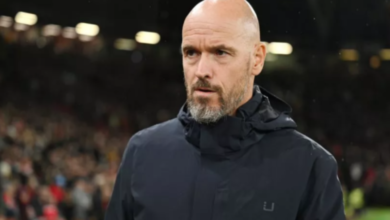Gary Neville stated that he observed Liverpool players at a nightclub “until 4 am, the day after their match against Arsenal.”

Gary Neville stated that he observed Liverpool players at a nightclub “until 4 am, the day after their match against Arsenal.”
Renowned for his unwavering dedication to the game, Gary Neville, a stalwart of Manchester United, recently shed light on a pivotal aspect of football history—the impact of Liverpool’s nightlife scene on their pursuit of glory during the vibrant era of the 1990s.
Reflecting on his illustrious career in a candid conversation on the Stick to Football podcast, Neville delved into the intriguing dynamics between two footballing giants of that era: Manchester United and Liverpool. At 48 years old, Neville’s insights offer a compelling glimpse into a bygone era where talent and discipline intersected with the allure of nightlife.
During his tenure at Old Trafford, Neville bore witness to the formidable talent pool that graced Liverpool’s ranks. From the likes of Steve McManaman to Robbie Fowler and Jamie Redknapp, the Reds boasted a roster teeming with prodigious skill—on par with their United counterparts, in Neville’s estimation.
However, Neville’s reminiscences unveil a striking disparity between the cultures fostered by the two clubs. While United’s senior players epitomized discipline and professionalism, Liverpool’s veterans were often synonymous with indulgent nocturnal pursuits. Neville recalls evenings where Liverpool’s stars, fueled by the excitement of the city’s nightlife, would linger in nightclubs until the early hours of the morning—a stark contrast to the disciplined exits of their United counterparts.
Neville’s narrative acquires a contemporary resonance as he draws parallels between past and present, alluding to Marcus Rashford’s recent entanglement in a headline-grabbing night out. This prompts Neville to contemplate the fabric of leadership within the hallowed confines of Old Trafford, raising poignant questions about the guiding influence shaping the next generation of footballing talent.
Central to Neville’s discourse is the vital role played by senior figures within a club—a sentiment echoed through his emphasis on the need for strong leadership and exemplary role models. As the footballing landscape evolves, Neville’s reflections serve as a poignant reminder of the enduring values that underpin success on and off the pitch, urging clubs to nurture a culture of discipline and responsibility for the betterment of the game as a whole.








